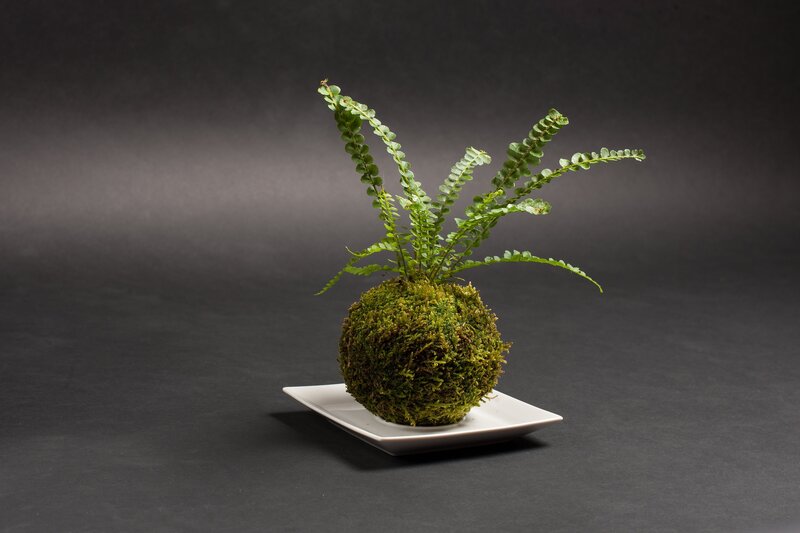Mastering the Art of Herb Gardening at Home
Posted on 18/08/2025
Mastering the Art of Herb Gardening at Home: Your Guide to Freshness
In recent years, growing your own fresh herbs has become a rewarding and accessible passion for gardeners and culinary enthusiasts alike. Herb gardening at home is not just about harvesting delicious flavors--it's also about enhancing health, sustainability, and creativity in your everyday life. Whether you are a seasoned green thumb or a novice, this comprehensive guide will help you master the art of home herb gardening. Let's unlock the secrets to abundant, aromatic, and thriving herb plants right in your home!

Why Start a Home Herb Garden?
- Freshness at Your Fingertips: Imagine snipping fresh basil, mint, or thyme right before mealtime.
- Healthier Living: Homegrown herbs are chemical-free, fresh, and packed with nutrients.
- Cost Savings: Growing your own culinary herbs is far more economical than frequent store purchases.
- Aromatherapy and Aesthetics: Herbs add beautiful greenery and delightful scents to any space.
- Personal Satisfaction: Tending plants is proven to reduce stress and boost mood.
Let's dive in and explore how you can benefit from cultivating your own indoor and outdoor herb gardens.
Choosing the Perfect Herbs for Your Garden
Growing herbs at home begins with the right selection. Start by choosing varieties best suited to your interests, environment, and available space. Here's an overview of popular easy-to-grow herbs for beginners and enthusiasts:
Best Culinary Herbs to Grow at Home
- Basil: Perfect for pesto, salads, and Italian dishes.
- Parsley: A versatile garnish rich in nutrients.
- Mint: Refreshing for teas and desserts, but requires containment as it can spread rapidly.
- Rosemary: Aromatic and ideal for roasting meats or potatoes.
- Thyme: Essential for Mediterranean recipes and soups.
- Cilantro: Brightens salsas, curries, and salads.
- Oregano: Vital for pizza and pasta sauces.
- Chives: Milder than onions, great for garnishes and omelets.
- Dill: Delicious with fish, potatoes, and pickles.
Herbs for Health and Wellness
- Lemon Balm: Known for its calming and digestive properties.
- Lavender: An herb for relaxation and fragrant bouquets.
- Sage: Traditionally used in teas for its wellness benefits.
Getting Started: Where to Plant Your Herb Garden
Indoor Herb Gardening
Indoor herb gardens are a fantastic way to cultivate herbs all year round, especially if you have limited outdoor space. Here's how to succeed:
- Choose a Sunny Location: Most herbs require 6-8 hours of sunlight daily. South-facing windows are ideal.
- Use Quality Containers: Ensure pots have drainage holes to prevent root rot.
- Opt for Potting Mix: Use a light, well-draining potting mix formulated for edible plants.
Outdoor Herb Gardening
If you have a balcony, rooftop, or backyard, outdoor herb gardening opens up possibilities for larger harvests and perennial varieties.
- Garden Beds or Raised Planters: Ensure soil is loose, fertile, and drains well.
- Cluster by Watering Needs: Group herbs requiring similar moisture for easier care.
- Protect from Harsh Elements: Shield tender herbs from wind and intense sun if necessary.
Step-by-Step: How to Start Your Herb Garden
-
Plan Your Layout:
- Identify a suitable location (window sill, patio, or plot).
- Sketch out where each herb will be placed based on its sunlight and space needs.
-
Choose Your Herbs:
- Pick seeds or starter plants of your favorite culinary or medicinal herbs.
-
Prepare the Soil:
- Mix organic compost into your soil or choose a commercial potting blend for containers.
-
Plant and Water:
- Follow seed packet or plant tag instructions for depth and spacing.
- Water gently but don't over-saturate the soil.
-
Label Your Plants:
- Use waterproof markers or decorative plant tags to identify each herb.
-
Maintain and Monitor:
- Check soil moisture and provide light as needed for robust, flavorful growth.
Secrets to Successful Herb Gardening at Home
Soil and Drainage
Most herbs thrive in well-draining soil with plenty of organic matter. Avoid heavy clay or waterlogged soil as this leads to root rot. If growing in containers, use specially formulated potting soil for herbs or vegetables.
Watering Habits
Overwatering is a common mistake in home herb gardening. Allow the top inch of soil to dry before watering again. Mediterranean herbs like rosemary and thyme prefer slightly drier conditions, while basil and cilantro need more consistent moisture.
Sunlight and Temperature
Herbs crave sunlight. Give them at least six hours of direct sun for optimal growth. Indoors, rotate pots every week to ensure even sun exposure. During winter, consider using grow lights if natural light is insufficient.
Pruning and Harvesting
- Prune Frequently: Regular pinching encourages bushy growth and prevents flowering, which can diminish flavor.
- Harvest Properly: Always snip herbs from the top, just above a leaf node, to stimulate new shoots.
- Don't Overharvest: Never remove more than one-third of the plant at once to avoid stressing it.
Creative Ideas for Home Herb Gardening
Vertical and Space-Saving Gardens
If you're short on space, don't worry! Vertical herb gardens on walls or fences, hanging baskets, or tiered shelves are excellent for urban settings and small apartments. Not only do they save space, but they also create visually stunning green focal points.
Companion Planting for Herbs
Some herbs benefit each other when grown together. For instance:
- Basil and Tomatoes: Both thrive together, and basil naturally repels tomato pests.
- Chives and Carrots: Chives deter carrot fly and protect nearby vegetables.
- Dill and Cabbage: Dill attracts pollinators and repels cabbage pests.
Herb Gardening for Kids
Introduce children to herb gardening at home through window box kits or small starter pots. Not only is it fun, but it also teaches responsibility and science in an engaging, practical way.
Organic Practices for a Healthy Home Herb Garden
- Compost: Feed your herbs with organic compost or natural fertilizers.
- Pest Control: Use neem oil, insecticidal soap, or companion plants to repel pests--avoid chemical sprays.
- Mulching: Apply mulch to outdoor beds to retain moisture and suppress weeds.
Preserving and Using Your Homegrown Herbs
Harvesting at the Right Time
The optimal time to harvest is in the morning after the dew dries, but before the midday sun. This preserves the essential oils that give herbs their flavor and aroma.
Methods of Preservation
- Drying: Bundle small bunches and hang upside down in a cool, dry spot.
- Freezing: Chop fresh herbs and freeze them in olive oil using ice cube trays.
- Infusing: Make herb-infused vinegars or oils for cooking and salads.
Culinary Uses
With a home herb garden, the culinary possibilities are endless: add fresh leaves to recipes, toss them in salads, or brew soothing herbal teas. Experiment, create, and enjoy bold new flavors every day!
Troubleshooting Common Issues in Home Herb Gardening
-
Yellowing Leaves:
- Often caused by overwatering or poor drainage.
-
Leggy Growth:
- Indicates insufficient light. Move plants to a brighter location.
-
Pests:
- Check for aphids, spider mites, and address early with organic solutions.
-
Flowering (Bolting):
- Pinch off flower buds promptly to keep herbs leafy and flavorful.
Tips for Year-Round Herb Gardening at Home
- Grow Hardy Perennials: Herbs like rosemary, thyme, and sage can overwinter in many climates.
- Indoor Herb Garden Kits: Use LED grow lights or hydroponic systems for year-round growth.
- Rotate and Refresh: Replenish soil annually and replace tired plants for continuous, lush harvests.

Conclusion: Enjoy the Fruits of Your Herb Gardening Mastery
Mastering the art of herb gardening at home is deeply rewarding--offering culinary creativity, endless freshness, and the satisfaction that comes from nurturing your own little patch of green. Whether you cultivate windowsill pots, outdoor beds, or vertical herb arrangements, the principles remain the same: good light, healthy soil, thoughtful care, and plenty of enjoyment.
Your home-grown herbs will elevate your cooking, decorate your space, and bring nature a little closer every day. Start your journey today and watch your herb garden--and your love for gardening--flourish!
Frequently Asked Questions:
- What are the easiest herbs for beginners to grow?
Basil, mint, chives, and parsley are among the most forgiving and versatile herbs for new gardeners. - Can herbs be grown indoors all year?
Yes, as long as they receive enough light and warmth, most herbs can thrive indoors throughout the year. - How often should I water my herbs?
Water when the top inch of soil is dry. Overwatering is a common cause of problems. - How can I use my harvested herbs?
Use fresh in recipes, dry for storage, freeze in oils or butters, and infuse in vinegars or teas.
Ready to begin your own home herb gardening adventure? With these actionable tips, you're well on your way to mastering the art of cultivating herbs at home--and enjoying homegrown flavors every day.
Latest Posts
Innovative Ideas for Garden Seating Areas You'll Love
Weathering the Storm: Protecting Gardens from Wind
Optimize Your Garden with These 3 Weed Control Tips
Planting the Seeds for a Kid-Focused Garden
Winter Warriors: How to Equip Your Garden for the Cold Months

